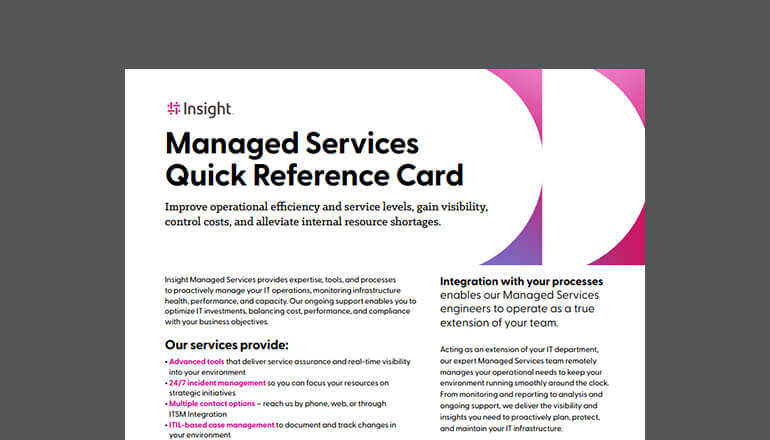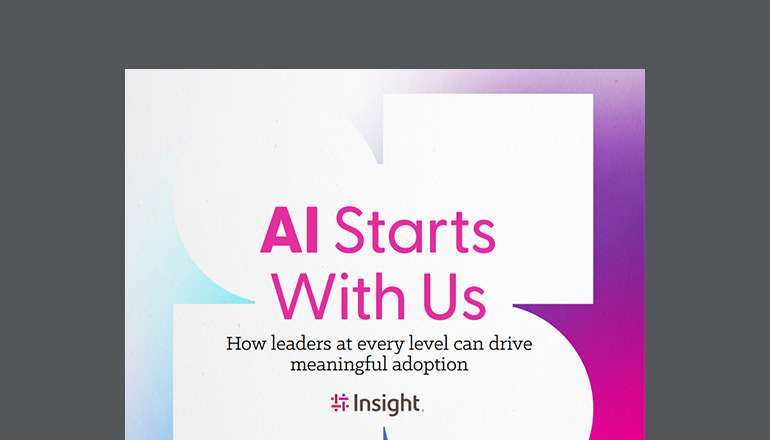Blog The Potential of AI in Retail: Key Considerations, Benefits & Use Cases
See how retail businesses can take advantage of the latest advancements in AI to improve their business operations.
By Juan Orlandini / 4 Oct 2023 / Topics: Artificial Intelligence (AI) , Customer experience , Digital transformation , Analytics

On a recent Insight Live featuring NVIDIA, Lenovo, and RadiusAI, I discussed how Artificial Intelligence (AI) is creating new potential for the retail industry — as well as best practices for starting the retail AI journey.
Watch the webcast on demand to see the full discussion.
The retail landscape is wildly competitive — and staying ahead requires retailers to respond to customers like never before. The key to success lies in leveraging the power of data and transforming it into actionable insights.
AI is revolutionizing the retail industry by generating valuable insights that drive better business outcomes. I’m seeing retailers using AI and Machine Learning (ML) to create incredible customer experiences, drive revenue growth, foster innovation and optimize operations — setting their business apart from competitors.
Benefits and use cases for AI in retail
AI and ML in the retail space acts as a catalyst for producing valuable insights by aggregating and transforming massive volumes of raw data into actionable intelligence. Here are some examples of how retailers are capitalizing on AI’s potential:
Queue management and people counting:
To improve in-store operations, retailers are turning to queue management and people counting solutions. Harnessing computer vision and AI technologies for people counting data enables retail stores to quantify queue demand in real time and improve business processes with precision.
Our experience and industry data show that more than 50% of retailers are investing or plan to invest in computer vision to optimize processes and reduce costs.1
Inventory management and demand forecasting:
AI-powered technology gives retailers the real-time information necessary to improve inventory management, meet customer demands and make better business decisions faster. Here’s an example of how Insight helped a large retailer deliver more shopping options for customers nationwide through real-time data processing — view the client story here.
Business intelligence and competitive edge:
With AI- and ML-based video analytics, retailers are increasing business intelligence — enabling more informed decisions about product placement, store layouts and staffing — to help drive a competitive edge.
See how Insight helped this convenience store chain and gasoline retailer achieve stronger business intelligence and competitive differentiation with security camera analytics — read the full client story here.
Improved costs, management and support:
Advanced AI capabilities and management dashboards are helping retailers improve business costs, increase support, and enhance user experiences.
Discover how Insight helped a multinational supermarket chain achieve valuable business outcomes, including professional support for evolving Internet of Things (IoT) efforts, with an AI-driven wireless solution — get the client story here.
Customer experience and business profitability:
Real-time visibility and automation are enabling retailers to achieve results with rapid response time, helping enhance the retail customer experience and increase business sales.
Read this client story to see how Insight helped a major grocery chain gain real-time peace of mind — and an estimated $195K in immediate ROI — with an IoT-based thermal camera solution.
Agile decision-making and supply chain optimization:
Retailers are using AI-powered data management and processing tools to drive agile decision-making and simplified supply chain operations.
A good example of this is our work with a national food retailer to deliver optimal business value faster and at scale after moving from inefficient data processing to a centralized platform — read the client story here.
Organized retail crime, theft, and loss prevention:
By using computer vision AI, retailers are bringing all levels of retail crime into focus — from physical crimes like armed robberies to inventory loss or theft from shoplifters. Enhanced video surveillance cameras combine AI and data analytics to monitor in-store behavior, enabling retailers to improve security accordingly and even prevent loss before it happens.
This infographic helps illustrate more ways that computer vision is transforming retail businesses. From improving security to innovating boundary-pushing customer experiences, implementing AI in the retail space is driving powerful outcomes with bottom-line impact. These applications of AI are gaining traction in brick-and-mortar stores, opening up new possibilities for improving the retail experience and filling gaps retailers may not even be aware of yet.
Key considerations for starting the retail AI journey
Consider the purpose.
The key to achieving success with AI in retail is to determine the strategic business objectives and prioritize areas that require improvement. Every organization will have different priorities — whether it's enhancing the employee experience, improving customer interactions or addressing specific challenges like retail crime. It’s crucial to identify AI solutions that align with these priorities without the need for building complex and time-consuming projects from scratch.
Considering use cases is the best place to start. Determine if your business is looking to:
- “Use” AI — i.e., leveraging a product with built-in AI capabilities. For many, if not most, of the use cases above, the AI capabilities I talked about were built into products. Our clients didn’t need to have data scientists or huge training budgets. This is the “easy button” to leveraging the power of AI without the investment in people or resources to build an AI model of your own.
- “Do” AI — i.e., collecting data from sources like cameras or IoT sensors and employing internal or third-party data scientists and engineers to drive new insights. There are times when a client’s need for AI is particularly unique, sensitive, or a significant differentiator. In those cases, it might make sense to invest in the people and resources to build your own AI systems.
- Integrate both strategies — There might be a need for organizations to “use” and “do” AI. Some capabilities might be bought off the shelf while others will have to be developed. The important part is making sure you are intentional in understanding the difference and investing in the most effective way for your business.
I cover this topic in greater detail in this blog: Doing AI vs. Using AI: Two Approaches to Maximize Your ROI.
Here at Insight, we have the right offerings and technical expertise to help retail clients make the best decision for their business. If you’d like to learn more, here’s a video of our experts sharing what it takes to make data and AI initiatives successful from the start.
Consider the business.
AI should be integrated into the overall digital transformation strategy of a retail organization — employing the existing resources and enhancing them to achieve better business outcomes. By leveraging AI and the available hardware platforms, retailers can create a sustainable and cost-effective digital ecosystem.
Consider the challenges.
While the benefits of AI in retail are significant, there can be challenges that hinder its adoption. Lack of in-house expertise, difficulty in proving the ROI, trouble scaling AI initiatives and concerns about cost are some common obstacles faced by retailers. However, by partnering with AI experts like Insight, leveraging pre-existing AI solutions, and adopting a digital-first approach, these challenges can be overcome.
Consider the journey.
To ensure long-term success with AI in retail, it is not enough to simply adopt and implement AI tools. Retailers must focus on optimizing, maintaining and monitoring these tools to drive continuous improvement. This involves regularly assessing the return on investment, validating the value of the AI tooling in use, and staying updated with the latest advancements in AI technology. Here at Insight, we help make sure you have the right processes and capabilities to measure and maintain these systems. Actively managing and evolving AI capabilities keeps retailers at the forefront of innovation and maximizes the value derived from AI in the long run.
Consider the right partner.
With support from Insight, you can strategically navigate each phase of the AI journey — from implementation to ongoing monitoring and maintenance. We’ll help you develop your strategy, transform operations, scale seamlessly and accelerate time to value.
Ready to start your AI journey in retail? At Insight, we combine deep industry expertise, advanced tools and strategic partnerships to help retailers take full advantage of AI and ML.
Source:
1 MarketPulse Research by IDG Research Services. (May 2021). Computer Vision: Adoption and Application. Commissioned by Insight.




